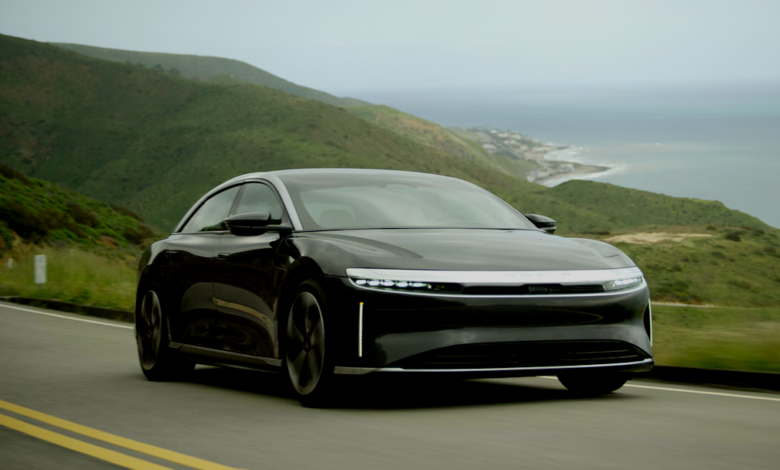Gas vs. Electric Cars: Which One Saves You More Money?
Gas vs. Electric Cars: Saves You More Money? the financial benefits of gas vs. electric cars, including upfront costs, fuel savings, maintenance.

The debate between gas and electric cars has intensified as consumers seek more cost-effective and environmentally friendly transportation options. With rising fuel prices, government incentives, and advancements in electric vehicle (EV) technology, many are wondering whether switching to an electric car is a financially sound decision. This article delves into the financial aspects of owning gas-powered versus electric vehicles, examining factors such as upfront costs, fuel and electricity expenses, maintenance, and long-term savings. By the end of this comprehensive analysis, you’ll have a clearer understanding of which option aligns better with your budget and lifestyle.
The automotive industry is undergoing a significant transformation as electric vehicles (EVs) gain traction in the market. While gas-powered cars have dominated the roads for over a century, the rise of EVs has sparked a debate about which type of vehicle is more cost-effective in the long run. Gas vs. electric cars is not just a matter of environmental impact but also a financial decision that affects your wallet. This article explores the key financial considerations, including purchase price, operating costs, maintenance, and potential savings, to help you determine whether a gas or electric car is the better choice for your budget. By examining these factors in detail, we aim to provide a clear comparison that empowers you to make an informed decision.
The Financial Comparison: Gas vs. Electric Cars
Upfront Costs: The Initial Investment
When comparing gas and electric cars, the first factor to consider is the upfront cost. Generally, electric vehicles tend to have a higher purchase price than their gas-powered counterparts. For example, a mid-range electric car like the Tesla Model 3 or Chevrolet Bolt EV can cost anywhere from 40,000to60,000, while a comparable gas-powered sedan like the Honda Accord or Toyota Camry might range from 25,000to35,000. This price difference is primarily due to the cost of battery technology, which remains one of the most expensive components of an electric vehicle.
However, it’s important to note that government incentives and tax credits can significantly reduce the effective cost of an electric car. In the United States, for instance, the federal government offers a tax credit of up to $7,500 for qualifying electric vehicles. Many states also provide additional incentives, such as rebates, reduced registration fees, or access to carpool lanes. When these incentives are factored in, the price gap between gas and electric cars narrows considerably.
Fuel Costs: Gasoline vs. Electricity
One of the most significant advantages of electric cars is their lower operating cost. Electricity is generally cheaper than gasoline on a per-mile basis. According to the U.S. Department of Energy, the average cost to drive an electric car is about 0.04permile,comparedto0.14 per mile for a gas-powered vehicle. This means that over the course of a year, an electric car owner could save hundreds or even thousands of dollars on fuel costs, depending on their driving habits.
The cost of charging an electric car can vary depending on where you live and the time of day you charge. Some utility companies offer discounted rates for off-peak charging, which can further reduce your expenses. Additionally, many EV owners install home charging stations, which are more convenient and cost-effective than relying on public charging networks. On the other hand, gas prices are subject to fluctuations due to geopolitical events, supply chain disruptions, and other factors, making it harder to predict long-term fuel costs for gas-powered vehicles.
Maintenance and Repairs: Simpler vs. Complex Systems
Electric cars have fewer moving parts than gas-powered vehicles, which translates to lower maintenance costs. For example, EVs don’t require oil changes, spark plug replacements, or transmission repairs, all of which are common expenses for gas cars. The regenerative braking systems in electric cars also reduce wear and tear on brake pads, extending their lifespan. As a result, EV owners can expect to spend less on routine maintenance over the life of the vehicle.
That said, electric cars are not entirely maintenance-free. The battery, which is the most critical component of an EV, can degrade over time and may eventually need to be replaced. While most manufacturers offer warranties on their batteries (typically 8 years or 100,000 miles), the cost of a replacement battery can be substantial, ranging from 5,000to15,000 or more. However, advancements in battery technology are gradually reducing these costs, and many EV batteries are designed to last the lifetime of the vehicle.
Long-Term Savings: Depreciation and Resale Value
Depreciation is another important factor to consider when evaluating the financial impact of gas vs. electric cars. Historically, gas-powered vehicles have depreciated at a faster rate than electric cars, partly due to the rapid advancements in EV technology and growing consumer demand for sustainable transportation. However, the resale value of electric cars can vary depending on the make and model, as well as the condition of the battery.
Some electric vehicles, such as Teslas, have shown strong resale value due to their brand reputation, performance, and over-the-air software updates. On the other hand, less established EV brands may experience steeper depreciation. Gas-powered cars, while more predictable in terms of depreciation, are also subject to market trends, such as the shift toward electrification and stricter emissions regulations, which could impact their long-term value.
Environmental Impact: Hidden Costs and Savings
While this article focuses on the financial aspects of gas vs. electric cars, it’s worth noting that environmental factors can also have indirect financial implications. For example, electric vehicles produce zero tailpipe emissions, which can contribute to better air quality and reduced healthcare costs associated with pollution-related illnesses. Additionally, many governments are implementing policies to encourage the adoption of EVs, such as tax incentives, grants for charging infrastructure, and exemptions from congestion charges.
On the other hand, the production of electric vehicles, particularly the extraction of raw materials for batteries, has its own environmental and ethical challenges. These issues could lead to increased regulatory costs or supply chain disruptions in the future, potentially affecting the price of EVs. However, as the industry continues to innovate and adopt more sustainable practices, these concerns are likely to diminish over time.
Charging Infrastructure: Convenience and Costs
The availability of charging infrastructure is a critical consideration for potential EV owners. While home charging is the most convenient and cost-effective option, not everyone has access to a private garage or driveway. Public charging networks are expanding rapidly, but the cost of using these stations can vary widely. Some public chargers offer free or low-cost charging, while others charge premium rates, especially for fast charging.
In contrast, gas stations are ubiquitous, and refueling a gas-powered car takes only a few minutes. This convenience can be a significant advantage for drivers who frequently travel long distances or live in areas with limited charging infrastructure. However, as EV adoption grows, the charging network is expected to become more robust and accessible, reducing this disparity.
Total Cost of Ownership: A Comprehensive View
To determine whether a gas or electric car saves you more money, it’s essential to consider the total cost of ownership (TCO), which includes the purchase price, fuel or electricity costs, maintenance, insurance, and depreciation. Studies have shown that while electric cars often have a higher upfront cost, their lower operating and maintenance expenses can make them more economical over time.
For example, a 2021 study by the University of Michigan found that the average TCO for an electric vehicle was $485 per year less than that of a gas-powered car. This figure takes into account factors such as fuel savings, maintenance costs, and government incentives. However, the actual savings can vary depending on individual circumstances, such as driving habits, local electricity rates, and the availability of incentives.
Read More: Top 10 Electric Cars for 2025: Which One Should You Buy?
Conclusion
In the debate between gas and electric cars, the financial advantages of electric vehicles are becoming increasingly apparent. While the upfront cost of an EV may be higher, the long-term savings on fuel, maintenance, and potential incentives can make it a more cost-effective choice for many drivers. Additionally, as battery technology improves and charging infrastructure expands, the barriers to EV ownership are likely to diminish further.
Ultimately, the decision between a gas or electric car depends on your specific needs, budget, and lifestyle. If you prioritize lower operating costs, environmental benefits, and the latest technology, an electric car may be the better option. However, if you value the convenience of widespread refueling infrastructure and a lower initial purchase price, a gas-powered vehicle might be more suitable. By carefully evaluating the factors discussed in this article, you can make an informed choice that aligns with your financial goals and driving preferences.
FAQs
Are electric cars cheaper to maintain than gas cars?
Yes, electric cars generally have lower maintenance costs due to fewer moving parts and no need for oil changes or transmission repairs.
How much can I save on fuel with an electric car?
On average, driving an electric car costs about 0.04permile,comparedto0.14 per mile for a gas car, leading to significant savings over time.
Do electric cars have good resale value?
Some electric cars, like Teslas, have strong resale value, but it varies by brand and battery condition.
What incentives are available for electric car buyers?
Many governments offer tax credits, rebates, and reduced registration fees for electric car purchases.
Is charging an electric car convenient?
Home charging is the most convenient option, but public charging networks are expanding, making EVs more practical for long-distance travel.








One Comment